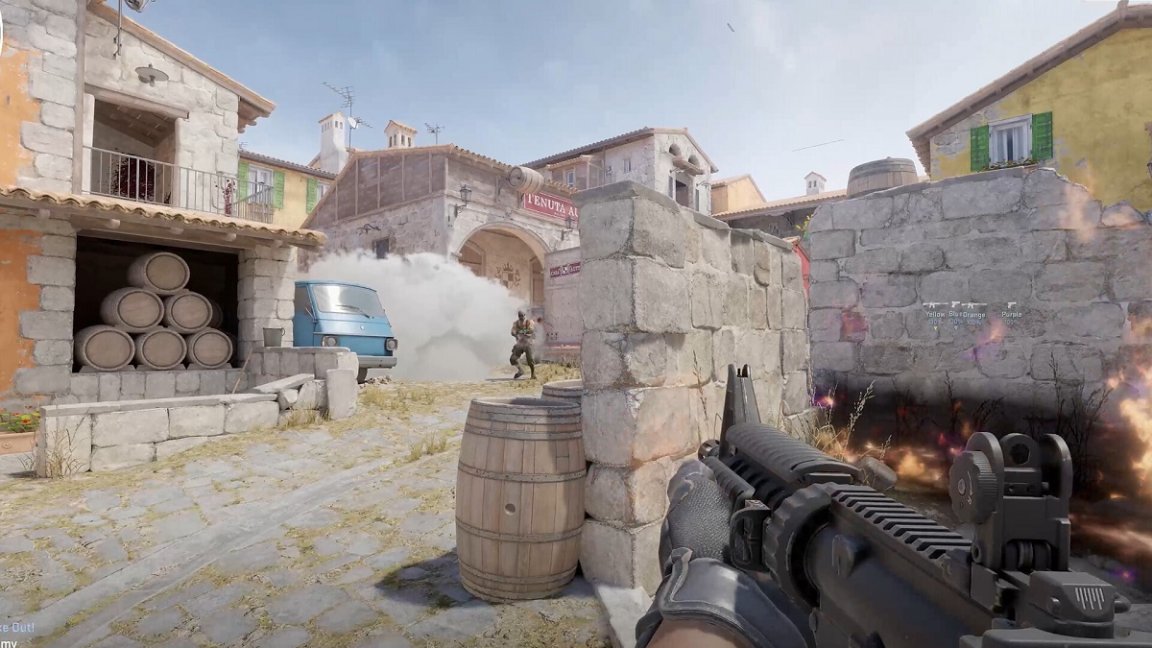
Last month, a second human patient had a brain chip implanted by Elon Musk’s brain-computer interface startup Neuralink — and he’s already off to the races.
In recently shared footage, the patient — named Alex, though his last name hasn’t been revealed — can be seen playing the iconic first-person shooter “Counter-Strike 2” using his mind for controls.
“I’m already super impressed with how this works,” Alex said in a blog post shared by Neuralink.
He previously played first-person shooters using a mouth-operated assistive device dubbed Quadstick, which required him to switch between aiming or moving by “letting go of the joystick and then sipping or puffing into a separate straw to toggle the functionality,” Neuralink explained.
“Just running around is so enjoyable because I can look side to side, and not need to move Quadstick left and right,” he added. “I can [think about where to] look and it goes where I want it to. It’s insane.”
According to the company, it took “less than five minutes for him to start controlling a cursor with his mind.”
“Within a few hours, he was able to surpass the maximum speed and accuracy he’d achieved with any other assistive technology on our Webgrid task,” the blog reads, referring to Neuralink’s game that’s designed to test how precisely one can control their computer.
The news comes after Neuralink’s first human patient, 29-year-old quadriplegic Noland Arbaugh, revealed that he had what amounts to “an aimbot in my head,” during a media appearance on the Joe Rogan Experience in June, referring to bots that automatically lock onto their opponents in video games. “They’ll probably have different leagues for people like me because it’s just not fair.”
At the time, Arbaugh lamented that first-person shooters like “Call of Duty” were still “too far out of reach for the Neuralink at this point,” and had to stick to less reaction time-sensitive games like “Civilization,” suggesting that the company has made considerable progress with its second human test subject.
Neuralink also claims to have improved in a different area that’s given Arbaugh a hard time. In May, Neuralink admitted that the threads reaching into Arbaugh’s brain, which the company uses to monitor the firing of neurons, had started retracting. One theory at the time was that air was trapped in Arbaugh’s skull following the surgery, which may have shifted the threads out of place.
As a result, Arbaugh’s control over the computer started diminishing quickly, forcing Neuralink to intervene and adjust the algorithms used to interpret signals from his brain.
In its latest blog post, Neuralink claims to have addressed the issue for its second human subject.
“To reduce the probability of thread retraction in our second participant, we implemented a number of mitigations, including reducing brain motion during the surgery and reducing the gap between the implant and the surface of the brain,” Neuralink wrote.
“Promisingly, we have observed no thread retraction in our second participant,” the blog reads.
More on Neuralink: As Neuralink Implants Second Subject’s Brain, First Patient Says His Doesn’t Work as Well Anymore